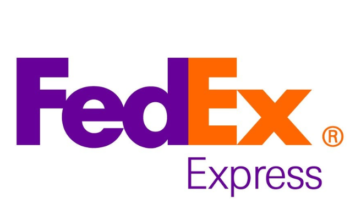Convincing your employer to sponsor your PMP (Project Management Professional) training can be a strategic move for both your professional development and the company’s success. A PMP certification is highly regarded in the field of project management, signifying that you have the knowledge and skills to manage projects effectively. However, the cost of the training and exam can be significant. Here’s how you can build a compelling case to persuade your employer to sponsor your PMP training.
1. Align Your Goals with the Company’s Objectives
The first step in convincing your employer to sponsor your PMP training is to clearly align your professional development goals with the company’s objectives. Understand the strategic goals of your organization and identify how your PMP Course in Singapore can contribute to achieving them.
For instance, if your company is focused on improving project delivery timelines, reducing costs, or increasing customer satisfaction, explain how the knowledge and skills you will gain from PMP training can directly impact these areas. Emphasize that as a PMP-certified project manager, you will be better equipped to handle complex projects, reduce risks, and deliver projects on time and within budget.
2. Demonstrate ROI (Return on Investment)
One of the most effective ways to convince your employer to invest in your PMP training is to demonstrate the return on investment (ROI) they can expect. This can include tangible benefits like:
- Improved Project Outcomes: Highlight how PMP training will enable you to apply industry-standard practices to your projects, leading to improved quality and efficiency.
- Cost Savings: With better project management skills, you can help the company save money by reducing project overruns, avoiding costly mistakes, and improving resource management.
- Increased Productivity: A PMP certification can enhance your ability to streamline processes and make better decisions, leading to increased productivity across your projects.
Provide examples of how other companies have benefited from having PMP-certified project managers and how it led to measurable improvements in project performance.
3. Present the Costs and Options
Being transparent about the costs involved in PMP training is crucial. Research and present the various options available, from online courses to in-person training, and compare their costs. You should also look for any discounts or corporate rates that might be available.
Present a detailed budget that includes the cost of training, exam fees, study materials, and any other related expenses. Additionally, mention the time commitment required and how you plan to manage your work responsibilities while undergoing training.
4. Highlight Your Commitment to Professional Growth
Employers are more likely to invest in employees who are committed to their professional growth and development. Demonstrate your dedication by outlining your career goals and how the PMP certification fits into your long-term plans.
Show that you have already taken steps toward achieving your PMP certification, such as completing preliminary coursework, joining project management groups, or gaining relevant experience. This indicates that you are serious about your professional development and that the company’s investment will not go to waste.
5. Offer to Share Knowledge with the Team
One way to make the investment more attractive to your employer is by offering to share the knowledge and skills you acquire with your team. Propose conducting training sessions or workshops after you complete your PMP certification to pass on what you’ve learned.
This approach not only benefits you but also the entire team and the organization. It ensures that the company gets the most out of its investment by spreading the knowledge throughout the organization.
6. Leverage Success Stories and Testimonials
Sometimes, seeing is believing. If possible, present case studies, success stories, or testimonials from other employees who have obtained their PMP certification and how it benefited their organizations. This evidence can help make a strong case for why your employer should sponsor your training.
If your company has a history of supporting employee development, remind them of that commitment and how sponsoring your PMP training aligns with their past actions.
7. Prepare for Potential Objections
Anticipate any concerns or objections your employer might have and prepare responses for them. Common concerns might include the cost, the time required, or doubts about the ROI. Be ready to address these points by emphasizing the long-term benefits of PMP certification, both for you and the company.
For example, if your employer is concerned about the time you’ll need to dedicate to training, suggest ways to balance your workload or offer to complete the training during less busy periods.
8. Schedule a Formal Meeting
Finally, schedule a formal meeting with your manager or HR to present your case. Come prepared with a well-organized presentation that outlines all the points discussed above. Show professionalism, confidence, and enthusiasm for how the PMP certification will benefit both you and the organization.
Conclusion
Convincing your employer to sponsor your PMP training requires careful planning, research, and a clear presentation of the benefits. By aligning your goals with the company’s objectives, demonstrating ROI, and showing your commitment to professional growth, you can make a compelling case that will persuade your employer to invest in your future as a certified project manager.


